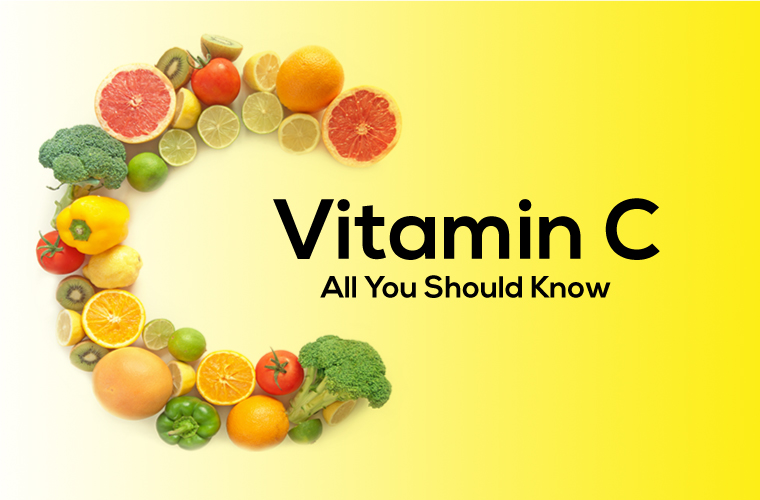
 2022-12-19
2022-12-19
VITAMIN C: WHY IS IT IMPORTANT?
Vitamins, including vitamin C, are an organic compound that exists in living things and contains the elements of carbon and oxygen.
Vitamin C is water-soluble, and the body does not retain it. To maintain adequate levels of vitamin C, humans need a daily intake of food that contains it.
Vitamin C is a vital nutrient for health. It helps form and maintains bones, skin, and blood vessels. It occurs naturally in some foods, especially, fruit and vegetables. Supplements are also available.
Vitamin C deficiency leads to Scurvy. Its symptoms include swollen joints, bleeding gums and loose teeth, anemia, and tiredness.
Ø In 1982, researchers concluded that wounds, cuts, and grazes may heal faster in people with a higher intake of vitamin C than is usually available from their food. The role of vitamin C as an antioxidant also helps repair tissue and reduces damage from inflammation and oxidation.
Ø People with adequate levels of vitamin C are thought to be better able to fight off infections compared to people with vitamin C deficiency.
Ø Vitamin C may also help prevent acute respiratory infections, especially in people with malnutrition and those who are physically stressed.
Ø Researchers have also found that vitamin C can kill drug-resistant tuberculosis (TB) bacteria in a laboratory culture. A study published in 2013 suggests that adding vitamin C to TB drugs could shorten therapy.
Other benefits of Vitamin C may include the following:
Ø Cardiovascular health: Vitamin C may widen the blood vessels, and this could help protect against heart disease and hypertension, or high blood pressure.
Ø Cholesterol levels: These were found to be lower in individuals with adequate levels of vitamin C.
Ø Diabetes: Patients are less likely to experience deterioration of the kidneys, eyes, and nerves if they eat plenty of fruit and vegetables that are rich in vitamin C.
Ø Anemia: Vitamin C enhances the absorption of iron.
Ø Lead levels maybe reduced if there is an adequate intake of vitamin C.
Ø Histamine: Histamine is a substance the immune system produces, resulting in inflammation and other problems. A 1992 study found lower blood levels of histamine in people who took 2 grams (g) of vitamin C per day.
Further, a handful of papers have suggested that vitamin C may help treat inflammation and symptoms associated with COVID-19. Currently, research suggests that vitamin C may help reduce the severity of complications related to COVID-19, but it may not treat or prevent the condition itself.